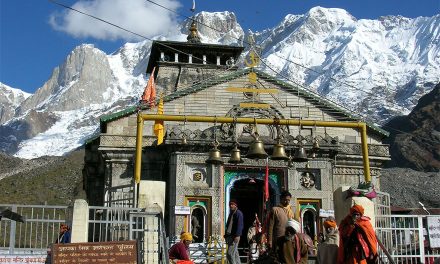[Editor’s note. Originally written in 2001.]
I am writing to comment on the recent terrorist attacks in New York and Washington, which you must have heard of by now. I am aware that some devotees take a casual or dismissive attitude toward these events, declaring that “It’s just a fight among the karmis.” Or, “People are just suffering their karma.” etc.
If this is the full extent of our response to these events, I think that we are somehow deficient as devotees. My logic is as follows:
Lord Krishna states in the Bhagavad-gita 6.32, that a devotee should possess universal empathy. A literal translation of this verse would read: “O Arjuna, I consider the supreme yogi to be one who, by comparison to the self, sees everywhere the same, whether happiness or distress.” This verse, among other meanings, recommends a kind of universal empathy. In his own translation of this verse, Srila Prabhupada stresses this universal empathy: “He is a perfect yogi who, by comparison to his own self, sees the true equality of all beings, in both their happiness and their distress, O Arjuna!”
In his purport, Srila Prabhupada continues to stress the point of empathy: “One who is Krishna conscious is a perfect yogi; he is aware of everyone’s happiness and distress by dint of his own personal experience. In other words, a devotee of the Lord always looks to the welfare of all living entities, and in this way he is factually the friend of everyone.”
This is how we can apply such empathy in the case of the terrorist attacks on New York and Washington: First, we can imagine what it would have felt like for us to have been on one of the four planes that were hijacked and destroyed, or in one of the three attacked buildings. There is ample information available so that we can be quite specific and explicit in imagining the experience. Second, we will probably have to honestly admit that we would feel significant discomfort, pain, or anxiety in such a situation. If we are capable of deep empathy, if we are able, as Srila Prabhupada states, to understand the experiences of others by comparing them to our own experiences, and we are “factually the friend of everyone,” then we experience true Vaishnava compassion.
In other words, we should not be more detached toward the suffering of others than we are toward our own suffering. We should not arrogantly dismiss the anguish of others, as if we are beyond anguish. A devotee who is truly transcendental to material suffering, and who would not have suffered at all in one of those four airplanes, or in one of those three buildings, would be a most exalted pure devotee and as such would feel great compassion for the fallen conditioned souls. Those who are not compassionate, and who dismiss as trivial or unimportant such great suffering, are not actually demonstrating advanced detachment in Krishna consciousness, but rather they are demonstrating a disturbing lack of common empathy, and are in fact embarrassing our movement by their neophyte response.
ISKCON devotees oppose animal slaughter. How can we not oppose human slaughter?
If one says, “it’s their karma,” then we reply that the same is true for cows and other animals who are slaughtered. If one says, “this is just a political fight among materialists,” I would reply that in the Bhagavad-gita, Lord Krishna clearly distinguishes between acts in the different modes of nature, and He specifically describes certain acts as not only materialistic, but as evil and demonic. It is surely evil and demonic to murder thousands of innocent persons. Let us remember that in Vedic culture, we are required to treat people according to their innocence and guilt in this life. God will take care of their past karma. We are not allowed in Vedic culture to abuse people, harm or kill them, and then say, “It must have been your karma.” Vedic culture is not moral anarchy in the name of karma. We should be above mundane morality, not below it.
During the Bangladesh War in the early 1970’s, Srila Prabhupada strongly condemned the Muslim atrocities against the Hindus, and indeed against other Muslims, in Bangladesh. Of course in every country on earth there are tragedies, and the devotees will benefit themselves personally, and greatly enhance their preaching, if they are able to achieve a real state of deep empathy, not in the cause of materialism or the bodily concept of life, but as a symptom of a budding self-realization that leads one to feel liberated compassion for all suffering beings.











